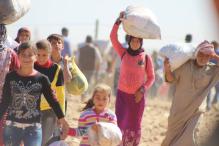As part of the Conflict Early Warning/Early Action Practitioners Workshop organized by New York University's Center on International Cooperation, UNU-CPR led a panel discussion on evidence-based early warning systems for child recruitment and use by armed groups and armed forces.
The international community has worked to end child soldiering through legal instruments, naming and shaming, and engagement with armed forces/groups. While gains have been made, the orientation is one of response, rather than prevention. To effectively prevent the recruitment and use of children, there needs to be a greater investment in evidence-based early warning systems that can identify recruitment and use of children at early stages and funnel evidence to the right stakeholders for early and preventative action.
This panel examined several efforts to contribute to evidence-based early warning systems for child recruitment and use by armed groups and armed forces. Representatives from United Nations University, the International Labour Organization, the Elman Peace Centre and the Dallaire Institute for Children, Peace and Security discussed opportunities and challenges in early warning systems and the complexities between prediction, prevention and the translation of early warning into early action.


